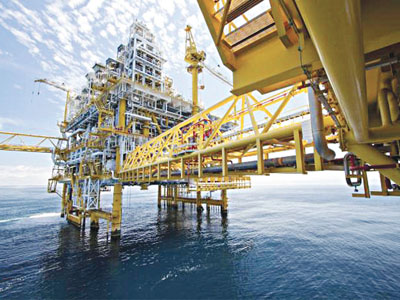 ONE of the major problems of Nigeria today is energy insecurity. The dream of being among the top 20 world economies in 2020 would ever remain a dream in perpetuity unless nagging issues assailing the energy sector are properly and urgently addressed.
ONE of the major problems of Nigeria today is energy insecurity. The dream of being among the top 20 world economies in 2020 would ever remain a dream in perpetuity unless nagging issues assailing the energy sector are properly and urgently addressed.
It’s a common knowledge that efforts by several administrations in the recent past to tackle the perennial energy crises have ended up reducing, instead of increasing, the national energy grid and capacity, though, at a very high cost.
Therefore, one of the major challenges the present administration is going to face remained its ability to tackle the issue of energy insecurity in Nigeria.
Energy security is the essential nexus between national security and the availability of natural resources for energy consumption.
Energy plays the most vital role in the economic growth, progress, and development, as well as poverty eradication and security of any nation.
Uninterrupted energy supply is a vital issue for all countries today.
For example, Nigeria practically ground to a halt over the past few days because there was no fuel at the filling stations across the country. As the generators that Nigerians rely on for 24-hour power ran dry, businesses began closing down. Telecoms announced cuts in their service. Airlines canceled days of flights. Banks closed early.
Also, electricity generation dropped to as low as 1,500MW due to the inability of the gas companies to supply product to power plants.
Two major areas that the new administration is expected to worry about are declining state of crude oil production and reserves; lack of electricity, which has resulted in the relocation of many manufacturing companies to neigbouring countries.
Declining crude oil production
Nigeria’s crude oil production has been on the decline in the last one year. This has also led to the drop in the country’s crude oil earnings.
For example, the country’s crude oil earnings during the fourth quarter of 2014 declined from $9.95 billion (about N2.5 trillion) it recorded in the preceding quarter to $7.77 billion (N1.9 trillion), according to the latest report from the Central Bank of Nigeria (CBN).
According to the report, the decline in the country’s crude oil earnings impacted negatively on aggregate foreign exchange flows, which fell by 18.3 per cent below the level in the preceding quarter.
Declining crude oil reserves
Nigeria’s crude oil reserves have declined from the 37.2 billion barrels it recorded in 2011 to 31.81 billion barrels in 2015, according to data from the Pipelines and Product Marketing Company (PPMC).
The nation’s oil reserves slumped from 38.5 billion barrels in 2008 to 37.5 billion barrels in 2010. In 2011, the reserves further dropped to 37.2 billion barrels, raising concerns among industry stakeholders.
The Royal Institute of International Affairs also called Chatham House, an independent policy institute based in London, in April 2008, carried out a study titled ‘Resource Depletion, Dependence and Development.’ The study focused on some oil producing countries including Nigeria.
The study showed that Nigeria’s oil and gas production will begin to decline from between 2021 and 2022, adding that Nigeria’s hydrocarbon export earnings would no longer support imports to the rest of the economy. The study was conducted even when Nigeria was growing its reserves. Now that Nigeria has started dipping hands into its reserves, the production decline and its economic impact may begin to occur before the Chatham House’s timelines. The study also noted that by 2036, Nigeria will be consuming all its oil and gas production domestically, insisting that Nigeria’s dependence on oil and gas is unsustainable.
Also, the Nigerian Association of Petroleum Explorationists (NAPE) and the Society of Petroleum Engineers (SPE), Nigeria chapter, which are outstanding oil and gas professional bodies in the country, have in the past few years been drawing the government’s attention to the economic threats that oil reserves depletion poses to the nation.
Drop in power generation
The country is currently generating about 2,000MW of electricity, down from over 4,500MW recorded in 2012.
The Minister of Power, Prof. Chinedu Nebo, had at any time blamed the activities of vandals for the country’s inability to move gas to power plants.
The government blamed the disparity in the generation potential and actual output on the activities of gas pipelines vandals.
Nebo called for stringent measures to ensure energy security and noted that until the circumstances surrounding the supply of gas to the power plants were adequately addressed, the country would continue to experience poor electricity supply.
He said, “Energy security must be addressed in a holistic manner. Can you imagine that because of the strike, Nigeria was almost crumbled? I have never seen anything like what I experienced and went through in my last few days in office as a minister. It was disastrous!
“With what happened, it means that the gas war has not been won and unless we win it, we cannot go forward. The first phase of the war has to do with the issue of gas pipeline vandalism and it may interest you to know that millions of dollars are spent fixing these gas pipelines on a monthly basis.”



